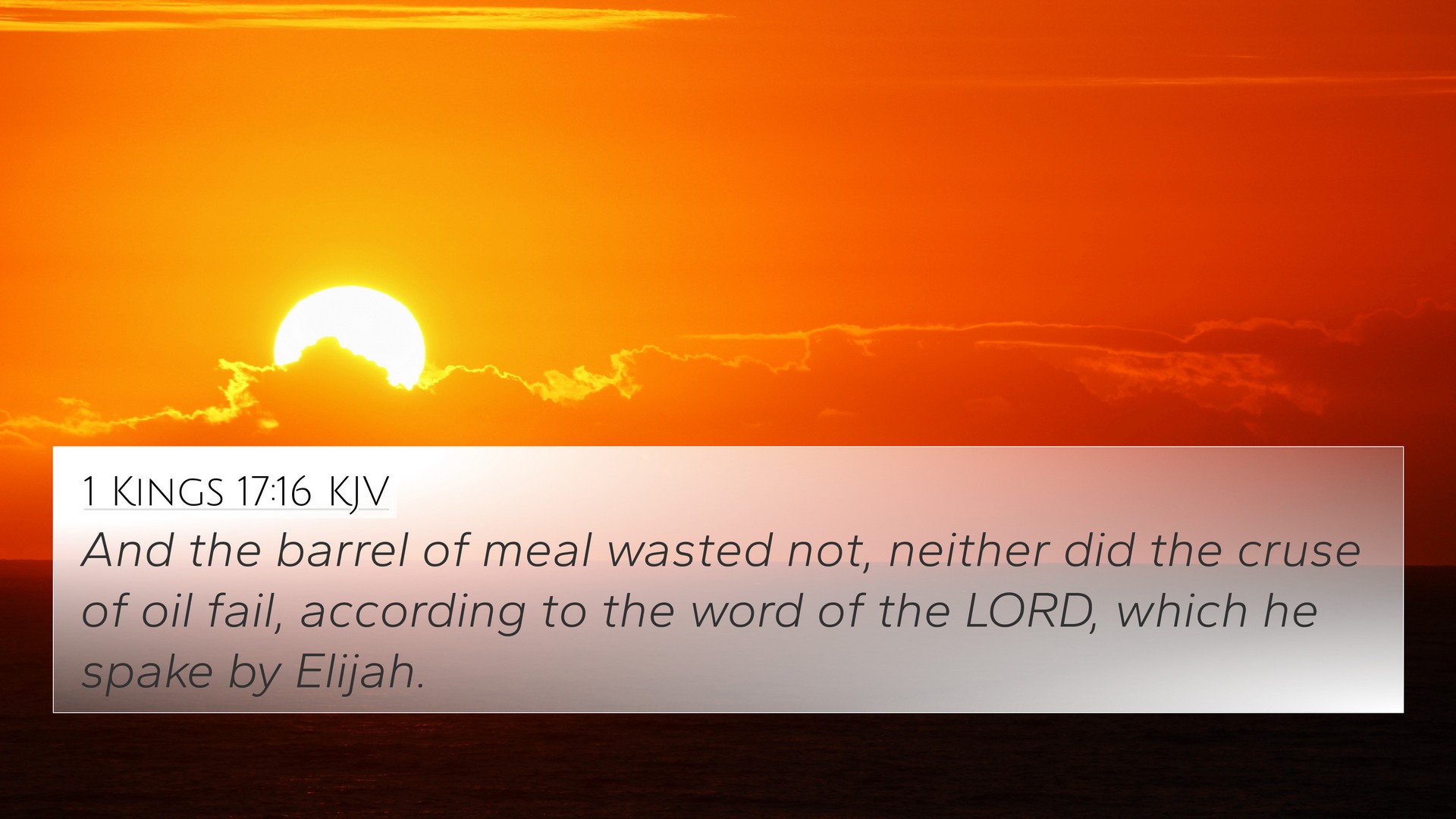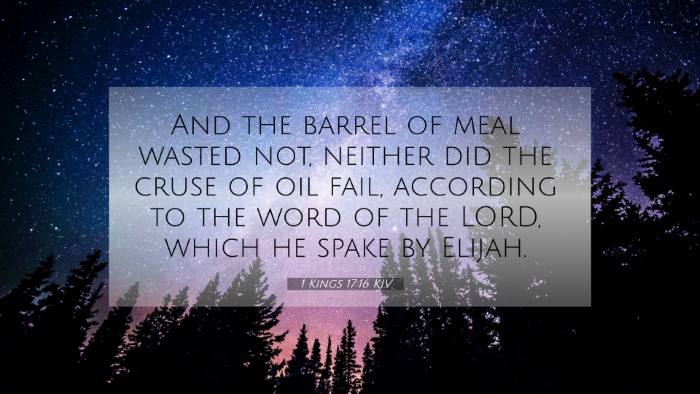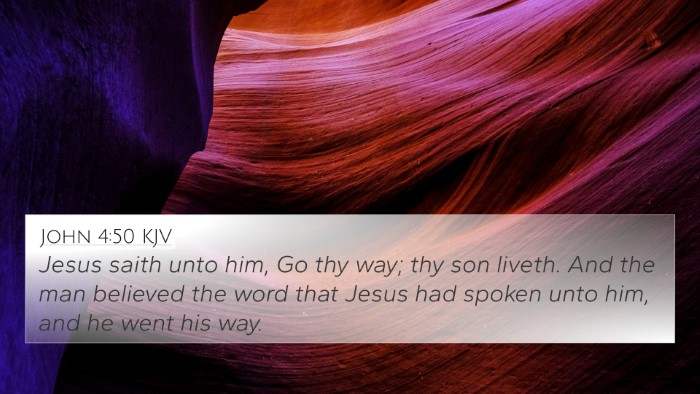Understanding 1 Kings 17:16
Verse Text: "The jar of flour was not spent, neither did the jug of oil become empty, according to the word of the Lord that he spoke by Elijah."
Summary of Meaning
1 Kings 17:16 conveys a profound message about faith, God's provision, and the faithfulness of His promises. This passage records a miraculous event during a time of famine, emphasizing that the family of the widow at Zarephath experienced God's sustaining power through the prophet Elijah. The flour and oil did not run out, highlighting God's ability to provide abundantly even in scarcity.
Commentary Insights
Matthew Henry's Commentary
Matthew Henry emphasizes that the miracle serves to illustrate God's providence and care for those who trust in Him. The widow's faith in the face of dire circumstances led her to obey Elijah, which resulted in God's miraculous provision. Henry notes that this passage not only demonstrates God's compassion but also serves as a lesson in faith and humility.
Albert Barnes' Notes on the Bible
Albert Barnes discusses the significance of the widow's act of faith. Her willingness to share her last meal with Elijah, despite her desperate situation, is a testament to her belief in God's promise. Barnes points out that this story illustrates God's capability to provide for those who prioritize His work and acknowledges the broader principle of God's faithfulness to His word.
Adam Clarke’s Commentary
Adam Clarke elaborates on the miraculous nature of the event, indicating that it serves as a fulfillment of God's promise to sustain His followers. Clarke highlights the importance of the divine command that led to this miraculous sustenance. He notes that the ongoing provision of flour and oil symbolizes spiritual nourishment and God's eternal sustenance for His believers.
Thematic Connections
This miracle captures several key themes found throughout the Bible, including:
- Faith in God’s Provision: Emphasizes trusting God during difficult times.
- Divine Intervention: Showcases God’s ability to perform miracles in human lives.
- God’s Faithfulness: Reinforces the truth that God keeps His promises.
Bible Verse Cross-References
1 Kings 17:16 can be linked to various other Bible verses that emphasize similar themes:
- Matthew 6:26: "Look at the birds of the air; they neither sow nor reap nor gather into barns, and yet your heavenly Father feeds them. Are you not of more value than they?"
- Philippians 4:19: "And my God will supply every need of yours according to his riches in glory in Christ Jesus."
- 2 Corinthians 9:8: "And God is able to make all grace abound to you, so that having all sufficiency in all things at all times, you may abound in every good work."
- John 6:35: "Jesus said to them, 'I am the bread of life; whoever comes to me shall not hunger, and whoever believes in me shall never thirst.'
- Exodus 16:35: "The people of Israel ate the manna forty years, till they came to a habitable land; they ate the manna till they came to the border of the land of Canaan."
- Isaiah 33:16: "He will dwell on the heights; his place of defense will be the fortresses of rocks; his bread will be given him; his water will be sure."
- Luke 12:24: "Consider the ravens: they neither sow nor reap, they have neither storehouse nor barn, and yet God feeds them. O how much more valuable are you than the birds!"
Practical Applications
The teachings from 1 Kings 17:16 encourage believers to trust in God's provision, no matter how dire their circumstances may seem. It challenges us to consider how we can demonstrate our faith through our actions, just as the widow did. Additionally, it reassures us of God's constant care and ability to miraculously sustain our needs.
Conclusion
In summary, 1 Kings 17:16 is a powerful reminder of God's unfailing provision. By analyzing this verse alongside other scriptures through cross-referencing, we can gain deeper insights into God's nature and His promises. The faith displayed by the widow and God's miraculous response serve as a profound encouragement to all who face challenges in their lives.









